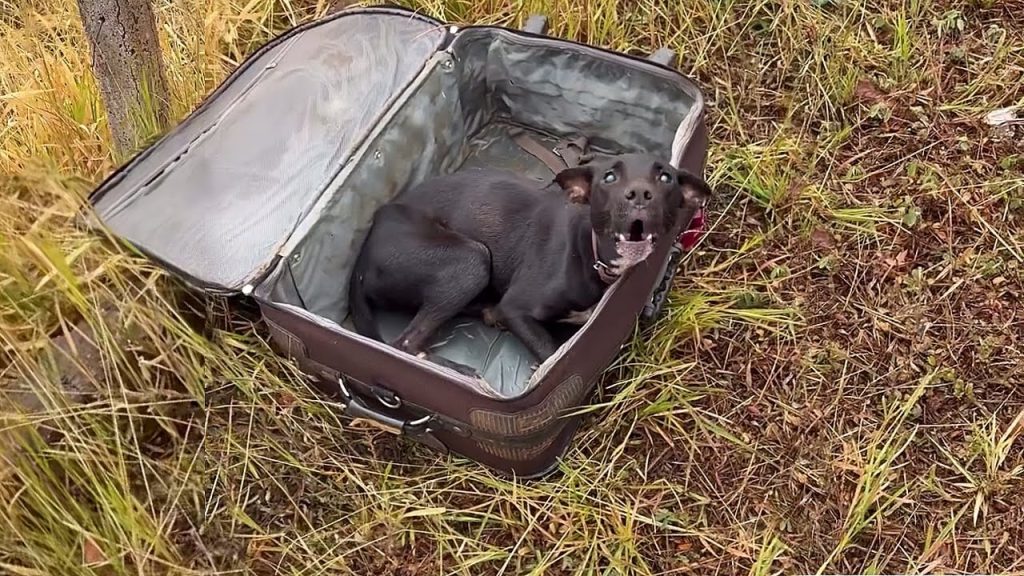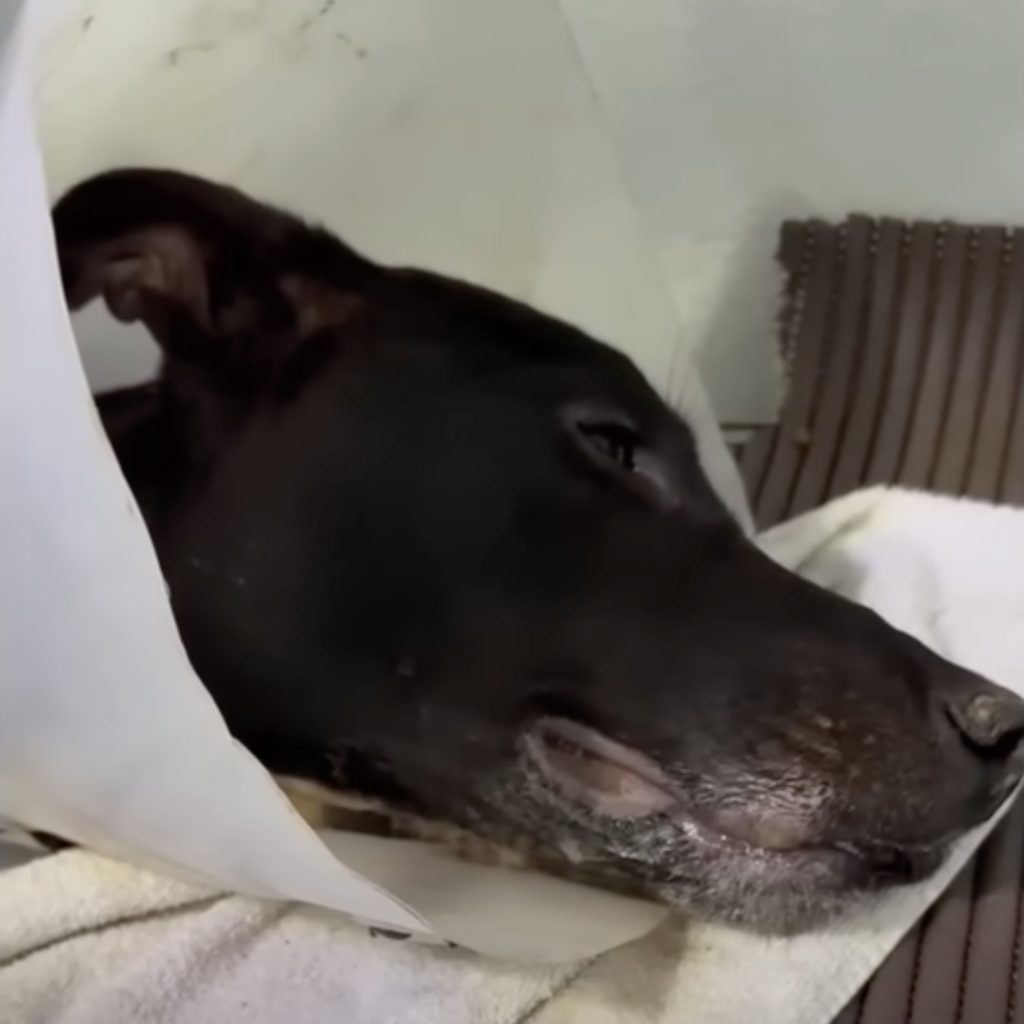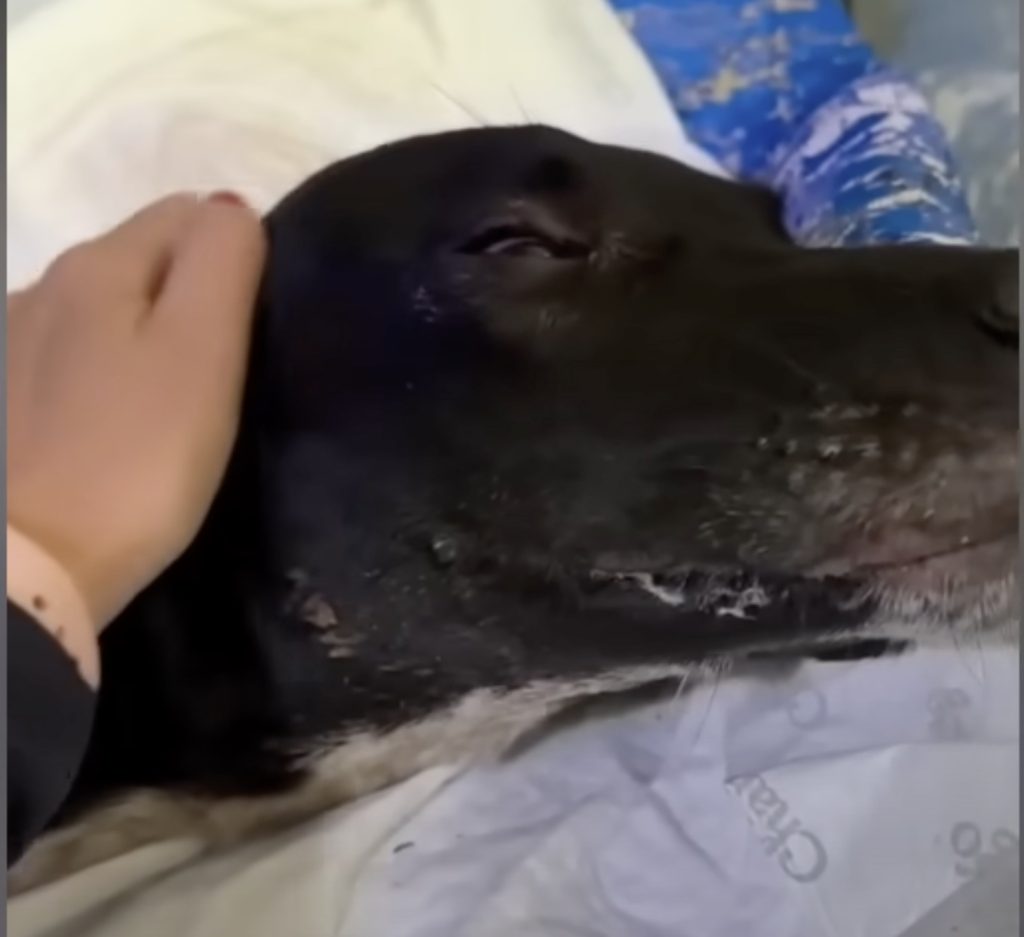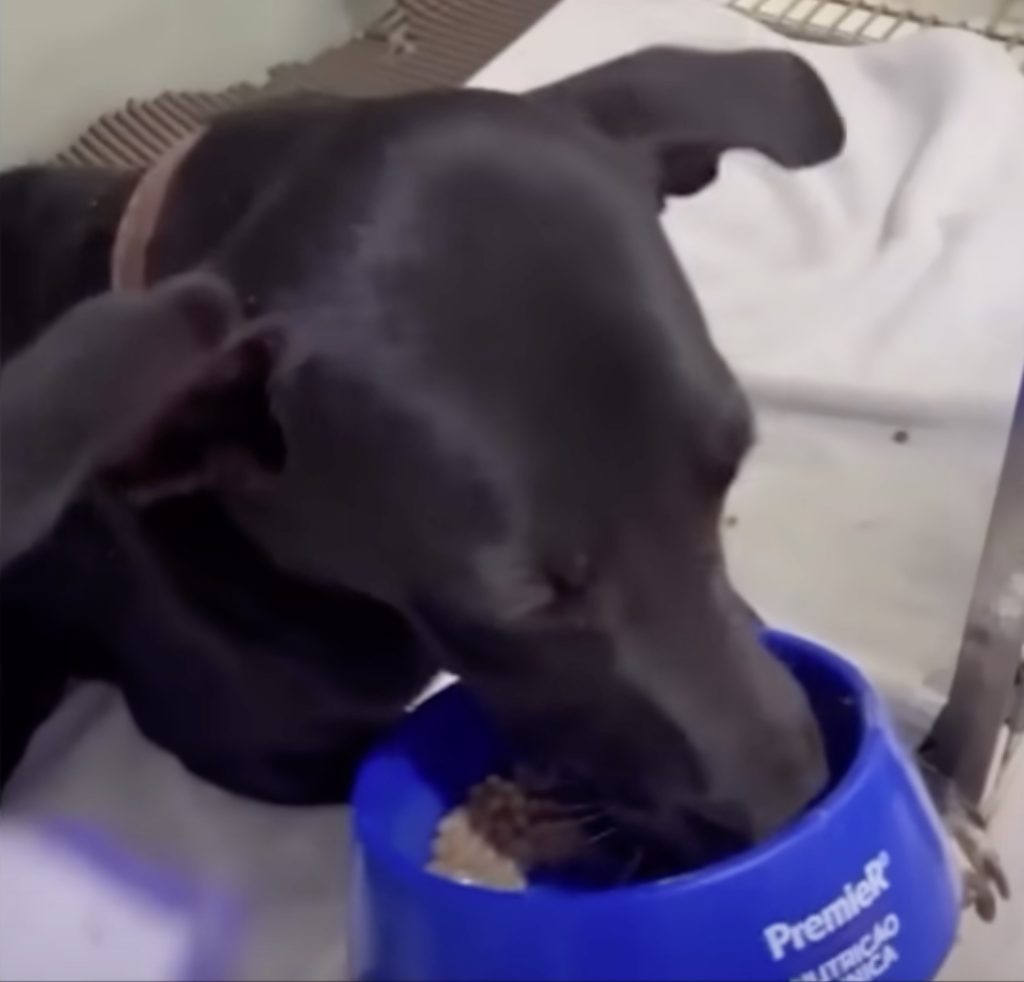Julius’s story begins in the most heartbreaking way imaginable. He was found zipped inside a suitcase and left abandoned in a grassy field, his small body trembling from fear and exposure. Julius, a black dog with a gentle soul, was in terrible condition when his rescuers discovered him. He was completely blind, unable to walk, soaked from the rain, and too weak to even lift his head. The sight of him left his rescuers stunned and deeply shaken. They could not understand how anyone could deliberately abandon a vulnerable animal in such a way, leaving him to face suffering and an almost certain death alone.

The team that found him acted quickly, refusing to waste a moment. Julius was rushed to a nearby animal hospital where a group of compassionate veterinarians began evaluating his condition. The news they received was devastating. After careful tests, the vets suspected Julius was suffering from advanced distemper, a highly dangerous viral disease that targets the nervous system. His small body was emaciated, he was severely dehydrated, and he was experiencing frequent, uncontrollable seizures that left him trembling and exhausted. His blood work revealed even more troubling information: his bone marrow was barely able to produce new red blood cells, leaving his system critically weakened.
For the veterinarians, the situation looked grim. They explained to Julius’s rescuers that the chances of recovery were extremely slim. In fact, some gently suggested that euthanasia might be the most humane option, sparing him from further pain. But Julius’s rescuers could not accept that choice. When they looked into his eyes, even clouded by blindness, they saw a spark of life, a quiet determination that told them he was not ready to give up. They made a promise in that moment—to stand by him and fight for him, for as long as he wanted to fight for himself.
The first nights in the hospital were tense and uncertain. Julius’s condition was fragile, and every hour felt like a test of endurance. His seizures drained his energy, and his weakened body made it difficult for him to regulate his temperature. The rescuers stayed close, visiting him, speaking to him gently, and making sure he knew he was no longer alone. Then, a small miracle happened. After one particularly critical night, Julius did not experience a seizure. When morning came, he seemed slightly more alert. His rescuers were overjoyed when he managed a soft, weak bark—his first real sign of improvement.
That small sound brought tears to everyone’s eyes. It meant Julius still wanted to live. Not long after, he surprised everyone again by eating on his own. For a dog who had been so weak and sick that he could not even lift his head, this step was monumental. It was more than just nourishment; it was proof that he was fighting his way back, refusing to let the cruelty of abandonment be the final chapter of his story.
The journey ahead was long and far from easy. Julius needed extensive medical care, including medication to stabilize his nervous system, fluids to combat dehydration, and constant monitoring to make sure his fragile progress continued. But the biggest challenge came in the form of physical therapy. His body had grown so weak that standing and walking were almost impossible tasks. Yet, with the help of patient and dedicated caregivers, Julius began small exercises to strengthen his muscles and slowly rebuild mobility.
The video documenting his recovery shows him learning to take unsteady steps with assistance, then gradually gaining the confidence to move more freely. Each milestone, no matter how small, was celebrated like a victory. His rescuers encouraged him every step of the way, praising him for his courage and resilience. The transformation, though gradual, was nothing short of inspiring.

As Julius continued to improve, his personality began to shine through the hardships. Though blind, he showed an incredible ability to trust the voices and gentle touches of those around him. His once-weak bark grew stronger, a symbol of his determination and his refusal to be silenced by the cruelty he endured. He wagged his tail when he heard familiar voices, leaned into the hands that stroked his fur, and began to express joy in ways that proved his spirit was not broken.
His journey is still ongoing, and he will likely need care for the rest of his life. But the most important truth has already been established: Julius is no longer invisible. He is no longer unwanted. He has a family of rescuers and supporters who have shown him that his life matters, that his presence is valued, and that he will never again face the world alone.

The story concludes with a powerful reminder. Whoever left Julius in that suitcase believed his life had no value. They were tragically wrong. Julius’s survival is proof that hope can bloom even in the darkest circumstances, and that kindness can rewrite the ending of even the saddest stories. His recovery is not just about healing his body; it is about restoring his dignity, his worth, and his right to live surrounded by love.
For those who hear his story, Julius represents more than one dog’s struggle. He is a symbol of resilience, a testament to the strength of compassion, and a call to action. Animals like Julius rely on people who are willing to step in, to speak up, and to believe in second chances. His journey reminds us all that even when the odds are against someone, hope is never lost as long as there is love and determination to guide the way.

Julius’s life today is not defined by the cruelty he endured, but by the love that saved him. And for everyone who has followed his story, he stands as living proof that every life has value, every soul deserves kindness, and every abandoned animal deserves to be seen, rescued, and cherished.





